A few years ago one, of my cats started acting strange in a way I couldn’t quite pinpoint. I brought her to see our veterinarian and, after a bit of prodding, I timidly professed “Well, her voice just sounds different.” It felt so silly coming out of my mouth. Our veterinarian, however, didn’t think it was silly at all. “You know her best” he reminded me. It was exactly the kind of validation I needed. In the end, it was lucky that I was able to trust my intuition. Something was indeed wrong with her and that small detail — that small change in her behavior — helped us catch it early.
I’d like to pass that validation on to you. You know her best. You know her habits. You know her activity level. You know what gets her excited. Many behavior changes can indicate that something is wrong with your cat. Trust your gut and get her checked out. Here are 8 red-flag behavior changes to pay attention to.
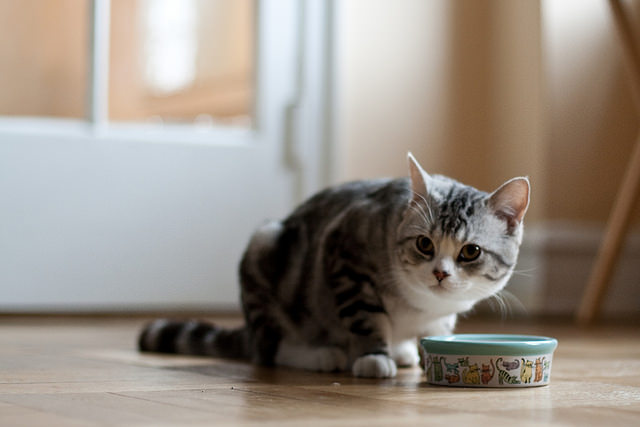
Image Source: Tom Thai via Flickr.com
1. Changes in appetite
A lost appetite can be a very clear sign that something is wrong. Not only that, but the health of a cat who isn’t receiving proper nutrition will spiral out of control even faster. Rapid weight loss can be devastating to a cat who only weighs eight pounds to begin with.
A cat may stop eating for a variety of reasons. Anything from a toothache to kidney failure could effect your cat’s appetite or ability to eat. Because a lost appetite can lead to more problems very quickly, it’s important to meet with your veterinarian right away if your cat stops eating.
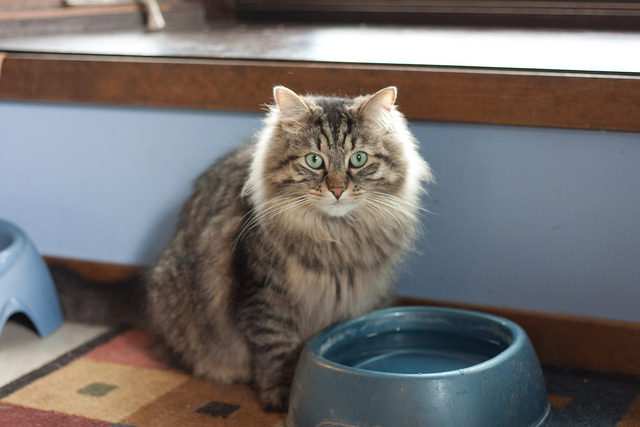
Image Source: jahofker via Flickr.com
2. Drinking excessive water
If your cat’s water bowl is suddenly empty much quicker than normal (with no signs of a spilling mishap), you should make an appointment with your veterinarian right away. Excessive water consumption could indicate a serious problem such as kidney disease or feline diabetes. The other end of the spectrum is dangerous too. A cat who doesn’t drink enough water can quickly become dehydrated.
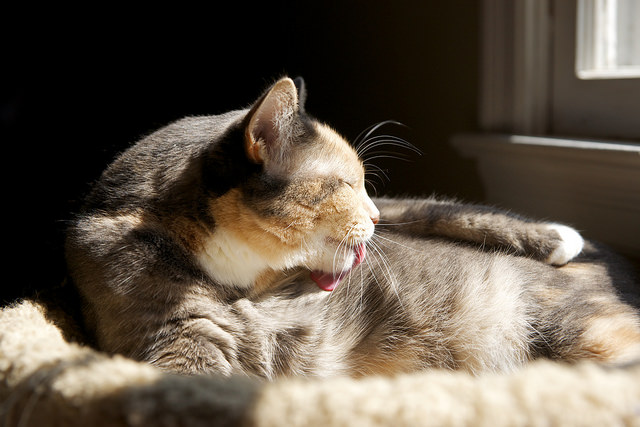
Image Source: Karen Blaha via Flickr.com
3. Changes in grooming habits
Cats can stop grooming themselves for a variety of reasons, which you can read about in our recent article: 5 Reasons Your Cat May Not Be Grooming Properly. The problem could be something as simple as your cat needing to shed a few pounds so she can more easily access her back. Make an appointment with your veterinarian if you can’t determine an obvious and solvable problem since a lack of grooming could also signal a bigger health problem.
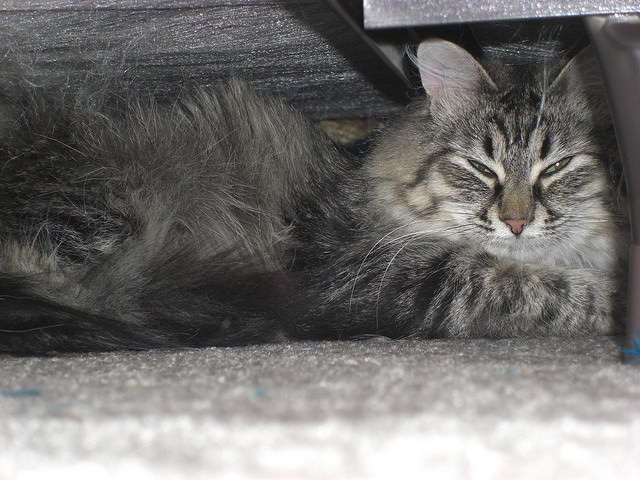
Image Source: Jon Ross via Flickr.com
4. Hiding
If your cat is normally social but has suddenly become a recluse, it can be a sign that something isn’t right. Sick cats can often be found hunkered down in a quiet place, hidden from potential predators.
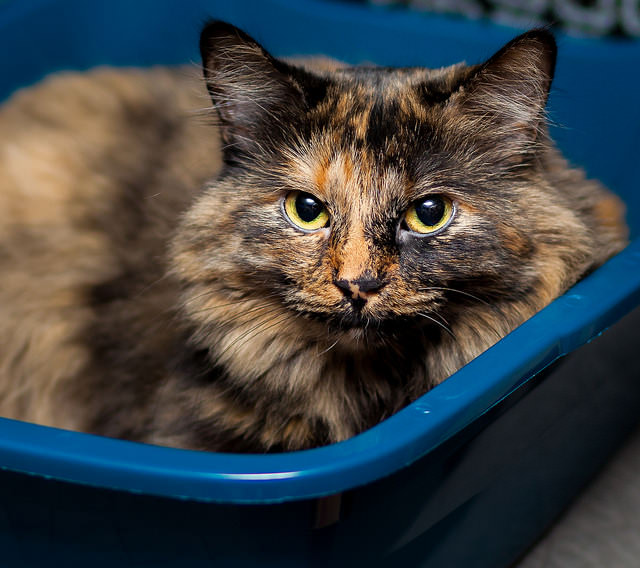
Image Source: The Metal via Flickr.com
5. Changes in litter box use (or not use)
Your cat’s litter box can be a very good tool for determining her overall health. Everything from stool consistency to the number of urine clumps can be a sign. Diarrhea, bloody stool, and excessive urination can all indicate illnesses.
Though often linked to other issues in the home (an unclean litter box, bullying from other animals, etc.) it can also be a sign of illness if your cat is suddenly eliminating outside of her box. Urinating outside of the box is often linked with health problems such as urinary tract infections.
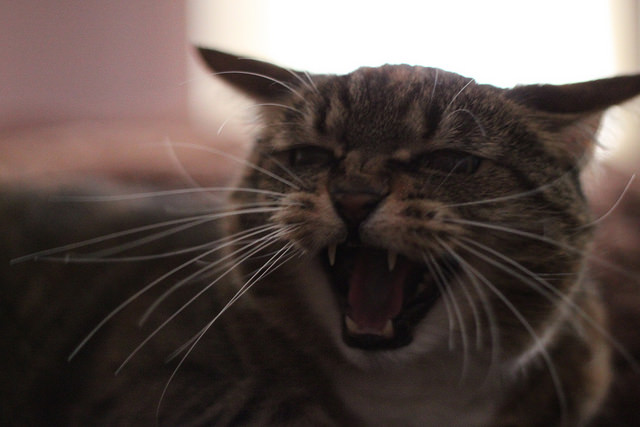
Image Source: HannaElise via Flickr.com
6. Aggression
Aggression can not only be a sign that your cat isn’t feeling well, but it can also be very dangerous to you, your family, and other animals living in your home. Misplaced aggression in the form of hissing, growling, ears that sit flat against her head, and attacks should be taken seriously.
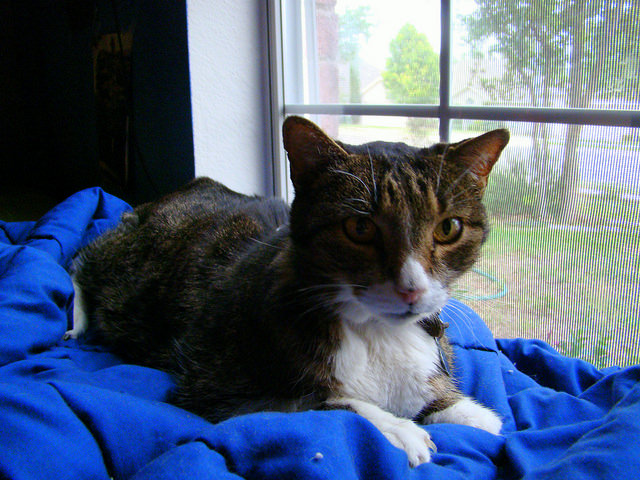
Image Source: littlemoresunshine via Flickr.com
7. Weight change
Obesity in and of itself can make your cat more susceptible to health concerns like arthritis and tumors, but sudden weight gain can also indicate hypothyroidism or parasites.
Sudden weight loss could be a sign of diabetes, thyroid disease, or cancer.
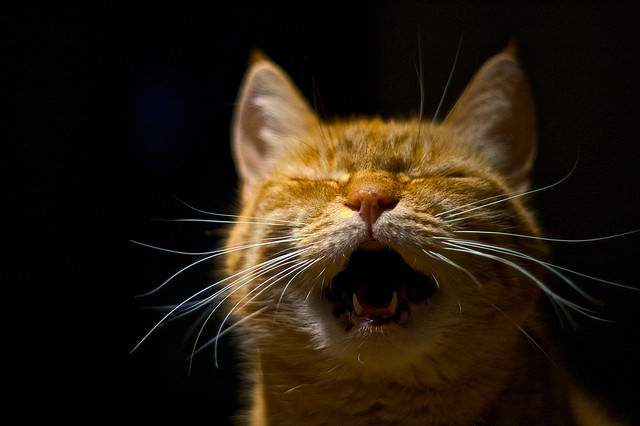
Image Source: Mingo Hagen via Flickr.com
8. Voice changes
Like I said in the beginning, even something as subtle as a change in your cat’s voice or level of chattiness is worth paying attention to. If you cat isn’t acting or sounding like herself, it’s best to be safe and schedule a checkup with her veterinarian.

